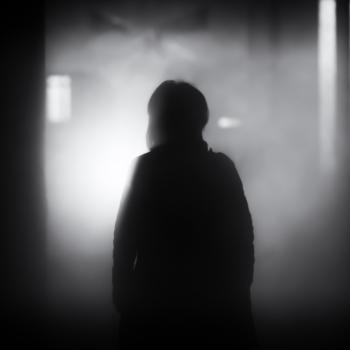 In The Sabbath World: Glimpses of a Different Order of Time, Judith Shulevitz characterizes the Sabbath as a “not-doing in a not-place,” but not doing, as the freshmen in my honors colloquium class on the Sabbath discovered, can be quite productive.
In The Sabbath World: Glimpses of a Different Order of Time, Judith Shulevitz characterizes the Sabbath as a “not-doing in a not-place,” but not doing, as the freshmen in my honors colloquium class on the Sabbath discovered, can be quite productive.
Before the first meeting of our class, the students completed this assignment:
1. Do nothing for a minute.
2. Write about the experience in exactly 250 words, not a word more or less.
3. After you complete steps 1 and 2, do nothing for five minutes.
4. Write about the experience in exactly 500 words, not a word more or less.
I kept the directions simple, intentionally did not explain how to “do nothing.” The duration and word count requirements? Fixed limits. The Sabbath: a container defined by time and space in which something extraordinary might happen.
So, what did happen? Here, in their words, are a few examples of what the students reported:
I became acutely aware of my various senses. I could hear every small sound…sounds that I would have never even registered if I had been doing anything…the passing of cars on the road outside my house…my brother’s movements on the second floor…I started thinking about how this experience felt, how I would put it into words, and what the experience could teach me.
I wanted to begin to draft this free response in my head during that minute, and I had to mentally restrain myself. It is funny that I had to use restraint to achieve nothing.
For probably fifteen seconds I had only little snippets of what I was going to write about flying through my head. Eventually, these purely work related thoughts became personal observations about my body, and among the realizations of how tired and stressed I am, one became solely apparent: my heart rate was extremely high.
Little things normally so miniscule one wouldn’t pay attention to them, I learned, can occupy your mind to make what you would think would be a long, boring sixty seconds into an interesting and not-so-boring minute.
The truly amazing thing…is how long that minute can seem.
During the first part of my minute, I wondered whether I was doing my assignment the “right” way.
The cicadas outside my bedroom window…seemed to be incredibly loud.
I felt an anxious feeling in my stomach about the tasks I still have to complete before tomorrow.
I started making little mental notes: “I need to give Ed back his surf board before I go, and I need to make sure all of my things will fit in my dad’s car.”
After I had the thought that I was accomplishing a task, I was completing an assignment, I felt better.
“Doing nothing”…I realized about five seconds in, is completely impossible for me to do. I noticed the feel of the sheets pressing on my skin. I’ve been sick so I was more acutely aware of a headache at the back of my head and a soreness at the back of my throat. I heard my dog come into my room and felt her lick my arms. The window to my room is open and that was letting a breeze come into my room and cool down my body. Also because of the window I was able to hear what was happening outside my room—I heard the birds outside in the trees, I heard the dogs across the street barking and I could hear the sound of downtown traffic, and feel the vibration of the train going back and hear it in the rattling of my chifferobe. I could hear my mom in her office nearby in the house singing and telling, preparing her story for the upcoming festival concert. I could hear the timer go off in the other room for the clothes drying and could still hear the washer spinning around. I could smell air fresheners as well as rain coming in on the air outside and as I listened further I could hear the drone of a weed eater down the street as someone took care of their lawn. That was about all that happened to me.
“That was about all that happened”: a minute of doing nothing, it seems, turns out to be a minute of noticing almost everything: sensing, planning, restlessness, settling, pleasure, pain. Everything, including the apparently inescapable urge to be productive, an urge relieved only by the effort to produce, within the constraints of the assignment, proof that one hasn’t wasted time.
“Rest as if all your work was done,” writes Abraham Joshua Heschel in his profound, lyrical meditation The Sabbath. As if that weren’t challenging enough, Heschel adds this: “rest even from the thought of labor.”
The Jewish Sabbath is rich with proscribed and prescribed acts—dos and don’ts: don’t light a fire, do make love with your spouse; don’t compute or commute, unless, if your denomination allows it, it’s to and from synagogue. Will the observance of these laws enable you to “rest even from the thought of labor”?
In this honors class, we are both studying and trying to experience Sabbath. Sabbath moments. Secular Sabbath moments. In the classroom itself. And beyond.
The Sabbath is commonly understood as a day of rest. If one is going to rest in a university setting, where thinking—critical and creative thinking—is the dominant form of labor, then, to observe a Sabbath here, one might need to set aside time to rest from the labor of thought. Is it a waste of precious time to rest in the classroom itself?
I’ll consider this further in my next post.
Richard Chess is the author of three books of poetry, Tekiah, Chair in the Desert, and Third Temple. Poems of his have appeared in Telling and Remembering: A Century of American Jewish Poetry, Bearing the Mystery: Twenty Years of IMAGE, and Best Spiritual Writing 2005. He is the Roy Carroll Professor of Honors Arts and Sciences at the University of North Carolina at Asheville. He is also the director of UNC Asheville’s Center for Jewish Studies.











